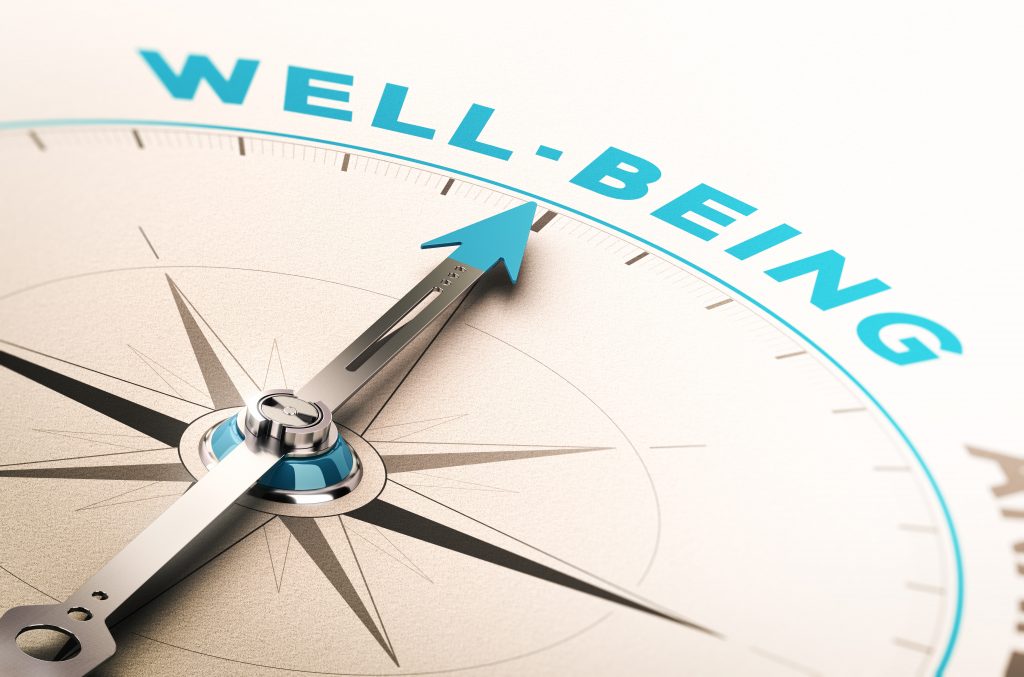Stress and anxiety can make life at University extremely difficult. A recent YouGov survey of UK students has revealed that more than one in four (27%) students reported having a mental health problem. Of these students, nearly half claimed their mental health caused them trouble completing some daily tasks, and 4% said they struggle to complete even simple tasks.
It’s so important to take care of yourself mentally as well as physically. You wouldn’t leave a broken arm untreated, would you? Well, it’s the same with mental health. The longer you leave it, the worse it could become.
Sometimes people just need some extra support. So, here’s our guide to taking care of your mental well-being whilst at University, including some tips for self-care and some advice on where you can turn to for help.

Take Some Time for Yourself
Taking care of your mental well-being at University is incredibly important. The stress of studying, maintaining relationships at home and at University, all whilst living independently (often for the first time) can pile on very suddenly and often feel overwhelming.
If you feel stressed, anxious, overworked or just a bit down, there are plenty of self-care tips that you can utilise to help alleviate these feelings. Self-care is about actions individuals can take to maintain or improve their well-being. These are by no means solutions to mental health conditions, but they can definitely help to maintain a healthy mindset.
10 Self-Care Tips
1. Breathe Deeply
Taking long, slow breaths all the way down to your diaphragm can help to relieve stress and anxiety when you feel overwhelmed.
2. Get Enough Sleep
Sleep is very important to both physical and mental well-being. Make sure you’re getting a full 8 hours every night and maintaining a healthy sleep schedule.
3. Do Something Charitable
Doing something good for others is a real mood booster. Find some ways to give back, such as volunteering locally in your community.
4. Eat Regularly
This sounds obvious, but it’s easy to slip into bad eating habits when you’re feeling down. Annoyingly, healthy, structured eating becomes even more important when you feel at your lowest. Try to eat three, balanced square meals a day.
5. Keep Hydrated
Water is your friend. Keeping well-hydrated can do wonders, so keep a full bottle with you throughout the day.
6. Reach Out to Friends
Your social life is important to your mental health. Even if you feel like isolating yourself, try to see people and engage in social events. When was the last time you spoke to your best friend from high school? Pick up the phone and give them a call.
7. Try Something Beautifying
Doing something for your appearance can really lift you up, whether it’s a soothing face mask, painting your nails or even a new haircut.
8. Social Media Detox
Social media has been linked to depression and low self-esteem. Consider giving it up, even if it’s just for an hour a day, and you’ll feel the benefits.
9. Engage in Exercise
Even though you may feel lethargic, exercise can really improve your mood as well as reducing stress. Even if it’s just a short walk outside, make time for some physical activity a few times a week.
10. Do Something to Make You Happy
This can be anything from indulging in a luxury hot chocolate from your favourite café or watching your favourite film for the millionth time. Give yourself a small act of kindness at least once a week.
Talk to Someone You Trust
The first step to getting help with mental health is to talk to someone, but this doesn’t necessarily mean seeking out a professional. Having a good friend or family member you can confide in, can make a world of difference, especially if you can talk to someone who has also experienced what you’re going through.
It’s best to ask that person if you can talk to them about what’s bothering you, rather than just unloading on them without warning. Not everyone feels equipped to talk about mental health issues, and they may worry about making the situation worse, so make sure the person you’re talking to is ready and willing to listen.
If you’re worried about a friend’s mental health, ask them if they’d like to talk…and ask again. Opening up about mental health issues is difficult for a lot of people, and they may not reach out for fear of judgement. Sometimes we need someone else to take that first step for us. Keep an eye on your friends for signs such as being distant, low confidence and expressing negative thoughts; let them know you’re there for them if they would like to talk.
If your mental health is starting to affect your Uni work, it might be a good idea to speak to your tutors if you feel you are able. They could offer assistance with your work, and could possibly even arrange for your essay deadlines to be pushed back if you feel unable to finish in time.

Where to Go for Help
If your mental health has got to the point where you feel you need professional and/or medical help, there are some different options.
Need to talk? You can call the Samaritans on 116 123; it’s a free phone number, and they are available 24-hours a day, every day of the year.
There is also Papyrus, a confidential helpline staffed by trained professionals to give advice to young people feeling suicidal or for anyone concerned for someone else. Call them on 0800 0684141 (Monday to Friday 10am-10pm, Saturday to Sunday 2pm-10pm).
Alternatively, the area you live in will likely have their own local NHS mental health crisis team. Your University may also run their own helplines; you’ll be able to find details on their websites.
If you feel you’re in a mental health crisis – where you feel you could be a risk to yourself or others – you can contact your GP or out-of-hours NHS support by calling 111. Your GP can provide urgent medical or psychiatric attention. If you feel your situation is life-threatening, you can go to A&E, or call 999 for an ambulance.
Support from Your University
Universities have been under increasing pressure to put more emphasis on mental health services. Many have listened and have made changes to their policies and the services they offer their students. You can take a look at your University website and see what kind of mental health services are available to you.
The wait times might be quite long for services such as counselling, but it’s definitely an option that’s worth exploring. These services are free, and your University should be able to work around your schedule and set up contingency plans if your mental health prevents you from completing any of your work before the deadline.
You can find helpful mental health resources for students on the websites for Lancaster and Reading. Here are the kinds of services they offer:
Lancaster
- Counselling sessions
- Well-being officers for each college.
- Mitigating circumstances reporting.
- Nightline – confidential phone service from 10pm-8am every night of term times.
Reading
- Counselling sessions
- Mental health advisors
- Online support community

Don’t neglect your mental health needs whilst at University. There is always help available to you, and you should never feel embarrassed or ashamed of your mental health or for seeking help. University is a stressful period of time for many people, so take care of yourself. If you need someone to talk to, the friendly CityBlock team are on hand and can help direct you to relevant services.





